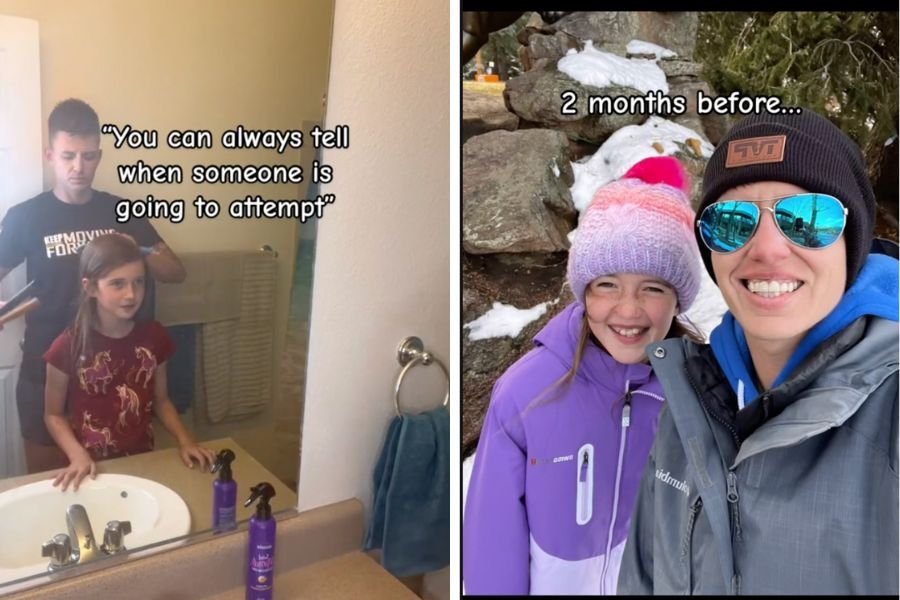Editor’s Note: This story discusses suicide. If you are having thoughts about taking your own life or know of anyone who is in need of help, the 988 Suicide & Crisis Lifeline is a United States-based suicide prevention network of over 200+ crisis centers that provides 24/7 service via a toll-free hotline with the number 9-8-8. It is available to anyone in suicidal crisis or emotional distress.
Not all depression looks the same. Sometimes people don’t even realize they’re depressed for a long time while others go to great lengths to appear okay to the outside world. People who have functional depression—who still go to work, spend time with friends and look to be enjoying life—may not seem depressed to those closest to them.
This kind of masking can be done for many reasons, but a lot of times, it’s because they don’t want other people to worry about them. But this could mean suicidal thoughts go unnoticed by loved ones. When people appear happy or as if they’re handling everything well, others are much less likely to check in on them.
When Brie Johnson uploaded a video with a quote that reads, “You can always tell when someone is going to attempt,” the happy videos and pictures that followed contrasted the reality of her attempting suicide.
Johnson, who’s a staff sergeant in the Air Force and mother of one, posted the short video in March with the caption, “Check up on your loved ones. It’s not always obvious.” This is a sentiment that has been expressed by people repeatedly with a widely shared graphic that reminds people to check on their strong friends—the sentiment being that when people appear to be handling things well, no one checks in to make sure they’re actually doing okay.
Johnson’s video is a harsh reminder that not every smiling face is conveying joy. Sometimes smiles and laughter are just a mask. So how are people supposed to know when someone is truly struggling when their outward behaviors seem to show everything is fine?
Knowing when to reach out can be tricky, but there can be subtle signs that may easily be missed. Social media posts may change subtly, like broadly asking for prayers frequently when they haven’t been in the habit of doing that. Some people may post memes that are either sad or borderline dark humor when those may be out of the ordinary. There could be a lack of care around how much alcohol or drugs they’re taking.
Someone who’s normally outgoing canceling plans more frequently than usual. Making jokes about death or suicide when it’s not a normal conversation for them. A friend who’s struggling may ask you about your final plans so they can bring up theirs without raising alarms.
These are all things that can be easily overlooked if you don’t know what to look for. But one of the best indicators that you need to reach out is any change, no matter how subtle, that makes you ask the question, “I wonder what’s going on with them?” So many times we ignore the tiny alarm bells that go off in our bellies because we’re on the lookout for the bigger, louder alarm bells. The tiny alarms are just as important. Now how do you reach out?
Several years ago, I noticed a subtle change in a friend’s social media statuses that activated my tiny alarm bells. After waiting about a week or so to see if things went back to normal, I reached out. Never having spoken to this person outside of the comments section in our online running community, I wasn’t sure how she would respond. But I sent a message that said something along the lines of, “I just wanted to do a check in with you. I noticed a change in your posts and I wanted you to know that I’m here if you need to talk.”
They responded that there were struggling with something pretty big that no one knew about. We spoke on the phone for a couple of hours with me mostly listening. They thanked me about a year later for seeing them when they felt no one else did.
Reaching out doesn’t have to be complicated, so try not to overthink it. A lot of times all it takes is genuinely asking how someone is doing and informing them that you want the real answer, not something surface. Then, just listen without judgment and without unsolicited advice or commentary. Ask them what they need and follow through. Human connection, along with the reminder that you matter, can go a long way.
This article was written by Jacalyn Wetzel, Licensed Clinical Social Worker and practicing therapist.


































